[ad_1]
As much as I would like to participate in furniture re-commerce for the fun of finding something serendipitously while supporting the circular economy, the logistics defeat me.
I’ve bought enough used bikes on community listing sites to know that what you see in a photograph is not always what you get in person. When I’m lucky and the bike works out, I can easily ride it home. Not so with furniture, particularly when it’s headed for a building where delivery is nothing but trouble, like our 19th century shoe factory loft conversion: steep narrow hallways and floor landings so sharply angled that every year a neighbor inevitably takes out a hallway light bringing in a Christmas tree. And the original wooden gated cage elevator, once a rope-pulley dumbwaiter, will hold at most three people standing sardine style. Gig folks—those who hire out for a one-off job—typically say no thanks.
This is precisely the problem that prompted Alpay Koralturk to create the furniture reselling company Kaiyo. In 2014, he and his wife had just arrived in Manhattan and needed to fill an entire apartment. “Since we’re both passionate about living sustainably, we naturally wanted to furnish our home in a conscious way,” he says. “We thought it would be easy to find great secondhand pieces in a city filled with amazing design and frequent movers. Unfortunately, that wasn’t the case.”
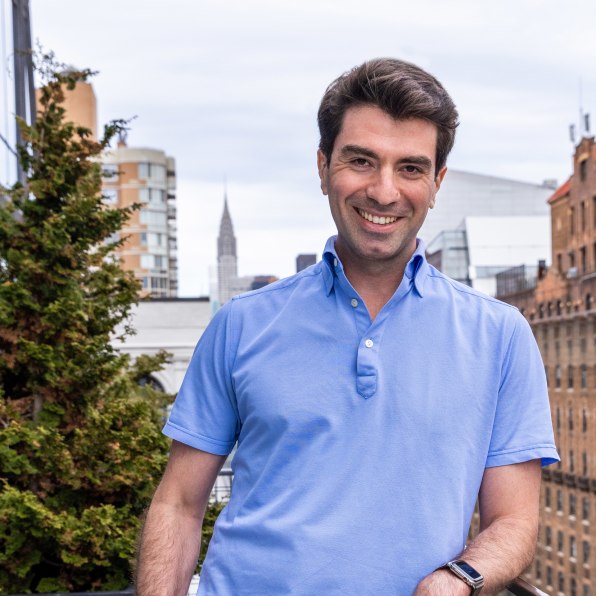
It was a decade before the expansion of resale marketplaces, and Koralturk was still utilizing the usual-suspect listing sites. “More than once we were stood up by a seller when we arrived to pick up the furniture, even though we had coordinated plans and went through the trouble of renting a U-Haul,” he says. “After too many frustrating experiences where we lost time, money, and Zen, we gave up on making the conscious choice. But I knew there had to be a better way for the consumer and the planet.”
From the very beginning, Koralturk’s focus was on reimagining how to buy and sell furniture in the 21st century. “Resale is a massive category, estimated at around $100 billion a year in the US alone,” he says. “But furniture is also by far the largest waste category, the least recycled waste category, and the least penetrated secondhand market. It doesn’t need to be.”
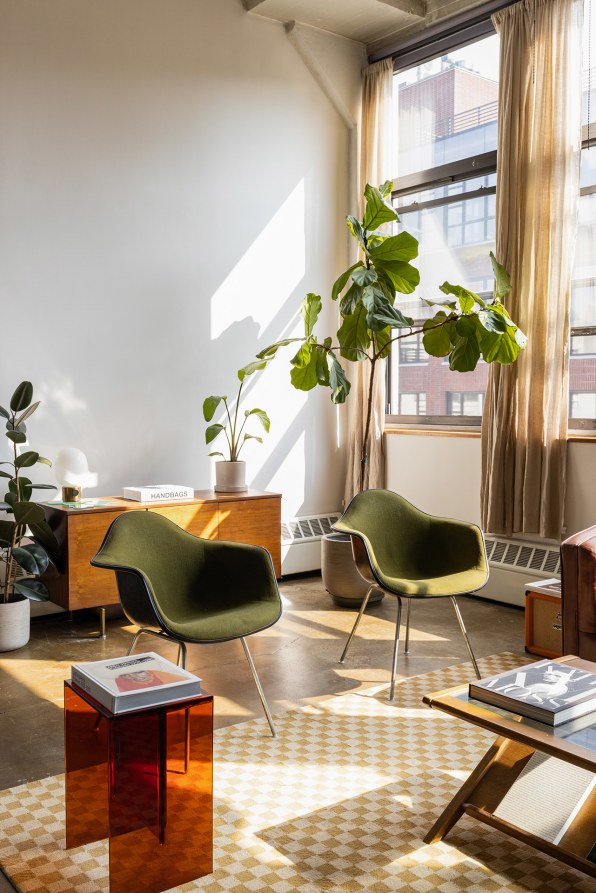
Sellers often discard their unwanted items out of frustration, and the EPA estimates that Americans throw out about 12 million tons of furniture and furnishings a year. “Consumerism is naturally in conflict with sustainability—to get what you want fast and affordably, there’s usually a cost to the environment,” says Koralturk. “So, we did our best to solve all the pain points that prevent people from participating in the secondhand market, with no good reason to discard an item and no impediment to purchasing one.”
Once it accepts an item for resale, Kaiyo picks the furniture up, cleans it, photographs it from multiple angles, and stores it in temperature-controlled warehouses. Kaiyo sets prices using an algorithm that analyzes an item’s brand value and condition alongside other market data. Similar to consignment, that price determines the seller’s revenue share on a sliding scale that goes from 10 percent for items less than $100 up to 55 percent for items priced at $3,000 or more. The seller cashes out via their preferred payment method when the item is delivered to the buyer, although for select items of great interest or value, Kaiyo may make an instant offer, and if accepted, the seller can cash out before their item resells.
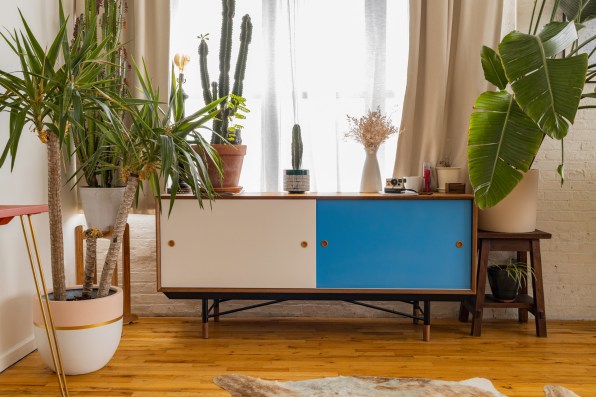
Kaiyo’s first “warehouse” (three rented nonadjacent consumer storage units in New Jersey that opened to a parking lot where they could do processing) was about 900 square feet of space, with an initial inventory bought on Craigslist using contractors hired for the day and U-Haul rentals. “I think we launched with about 140 items, with delivery limited to greater New York City,” says Koralturk.
Nine years later, Kaiyo has roughly half a million square feet of warehouse space in New York, New Jersey, Philadelphia, Baltimore, Washington, D.C., and Southern California, adding hundreds of new items to the site every day and servicing thousands of customers each month through its digital storefront. To date, the company has facilitated the resale of nearly 3,000 tons of furniture that might otherwise have wound up in landfills.
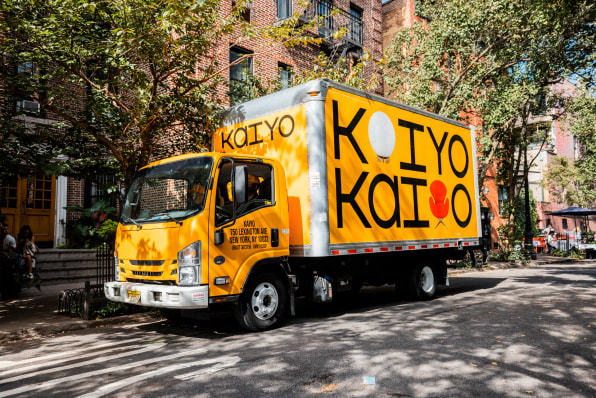
Koralturk also considers buying secondhand a great way to help people identify their taste and hone their own style by providing a sense of discovery and excitement not typically associated with furniture shopping. “Our customers constantly talk about the thrill of the hunt, and resale pieces hold a better story –intangibles you simply can’t get buying mass-market,” he says. “We definitely see people experiment with different aesthetics, likely because they come across deals that are too good to pass up.”
Kaiyo publishes an annual report covering subjects from sustainability to style, available to the public on their website. While offering relevant data—an average living room set furnished with secondhand pieces offsets a total of 173 kg of C02, the equivalent of saving 19.5 gallons of gasoline from being used—the report also reveals favored brands and even selling speeds, an indication that today’s escalating interest in resale isn’t just about economy, but also an appreciation for creativity, craftsmanship, and design: an upholstered accent chair from Britain’s prestigious George Smith sold in 13 minutes, a Desiron bookcase from that American handcraft brand went in just six.
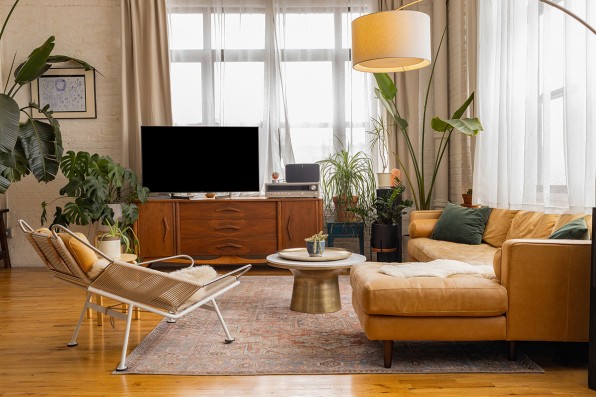
Moving forward on his mission to increase circularity in the furniture industry, Koralturk’s new stage of growth for Kaiyo starts closer to the source, offering responsible resale as a service to retail partners, reselling their surplus inventory (thereby freeing up supply chain to accommodate incoming product), managing returns in a way that helps the retailers achieve higher cost recovery, and reducing their own environmental impact. Looking further into the future, he sees Kaiyo as a partner for developing a retailer’s customer buyback or trade in program, advancing even more opportunity for circularity. Koralturk’s ultimate goal is to form an alliance with industry to increase circularity. “After all,” he says, “this massive waste category is not made possible by consumers alone.
Francine Maroukian, a two-time James Beard Award winner, is a food and travel writer who also works as an operative researcher for C-suite executives in big retail.
[ad_2]
Source link

